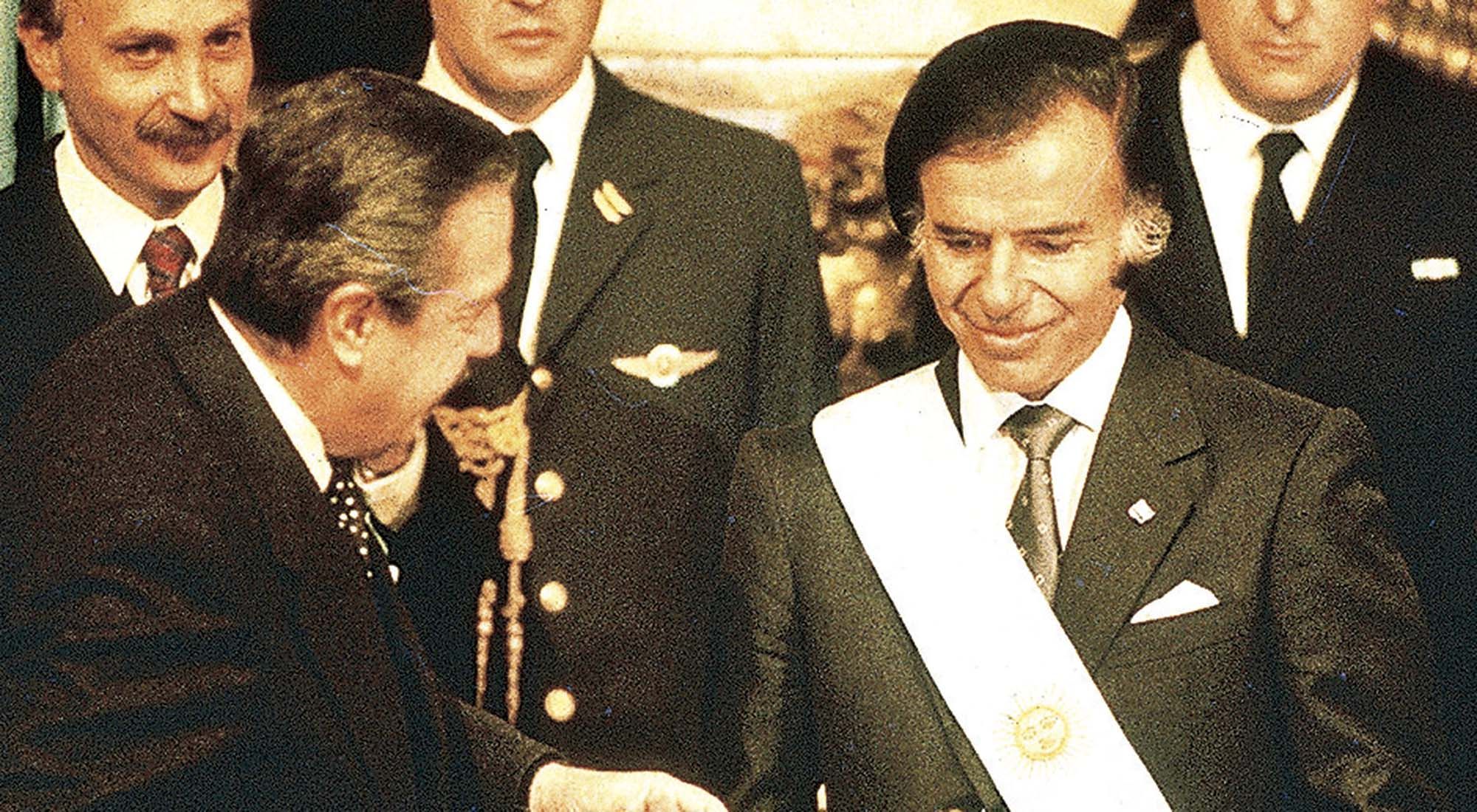
[ad_1]
Alfonsin was the leader who had pulled Argentina out of political violence and ended the possibility that a coup d'état annulled the constitution. It was our Gandhi.
On October 26, 1983, I saw him personally. I was 31 years old, I had never participated in politics, but I went to the obelisk to listen to his closing speech. The dictatorship demanded impunity for the disappearances and what she called "illegal" in reference to the multitude of cases of corruption denounced.
Alfonsin stood in front of about a million people and his first sentence was: "The dictatorship is over". The crowd roared. "The corruption is over." Once again the crowd approved.
He called us to unity: "In this march to strengthen the freedoms of all, there will be no political distinctions, there will be radicals or anti-radicals, Peronists or anti -Peronists … We will all fight for the Argentine future. " He ended his speech by reciting, with the people, the preamble of the Constitution.
The Alfonsin's proposal to apply the law was and remains revolutionary. While South America was under dictatorships, including Chile and Uruguay, Alfonsín was the first leader to propose the judicial inquiry of the past. The Argentine Communist Party had proposed in the 1983 elections the creation of a military civilian government. Years later, in a much more favorable context, US President Barack Obama, at the time, decided not to investigate the acts of torture perpetrated during the Bush era.
Alfonsín gained the support of the majority of the people and kept his promises. In his first decision as president, he summoned the Congress: "The past gravitates darkly in our future, terrorism and repression of this terrorism can not go unpunished." The de facto law, called national pacification, must be repealed. and declared null and void.
On December 15, Raúl Alfonsín ordered the opening of an investigation on guerrilla leaders and members of the military junta and invited a group of prominent social and religious leaders to lead CONADEP to receive complaints about what happened.
On December 22nd and almost unanimously, the new Congress, with the vote of the Radical caucus and a renewed Peronism, annulled the nullity of the "self-amnesty" adopted by the last Military Junta. In Argentina, there is no "gap" in the validity of the constitutional order.
The report of CONADEP and the Trial of Junta confirmed the new social pact of the Argentineans. Alfonsín united all Argentineans and all parties in a "no to political violence" and to the respect of the Constitution. This political agreement is still valid but it has not solved the problem of corruption.
How to ensure that all parties have a common platform against corruption?
.
[ad_2]
Source link
 Naaju Breaking News, Live Updates, Latest Headlines, Viral News, Top Stories, Trending Topics, Videos
Naaju Breaking News, Live Updates, Latest Headlines, Viral News, Top Stories, Trending Topics, Videos